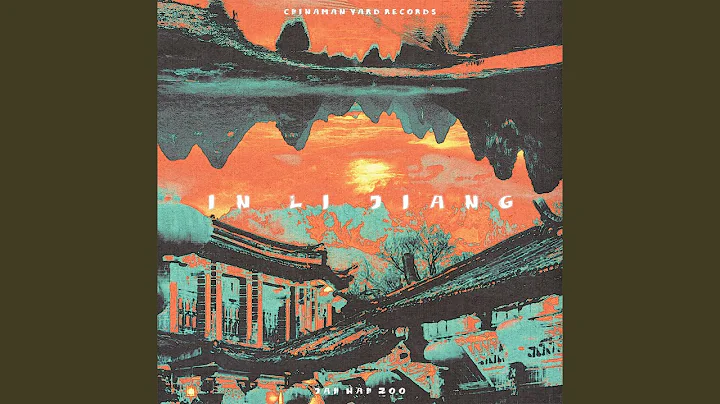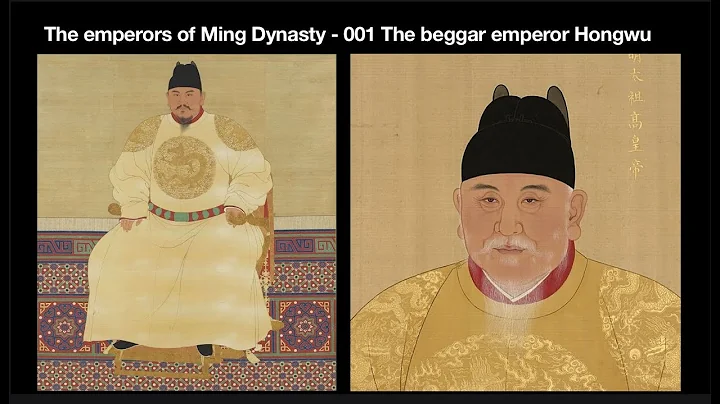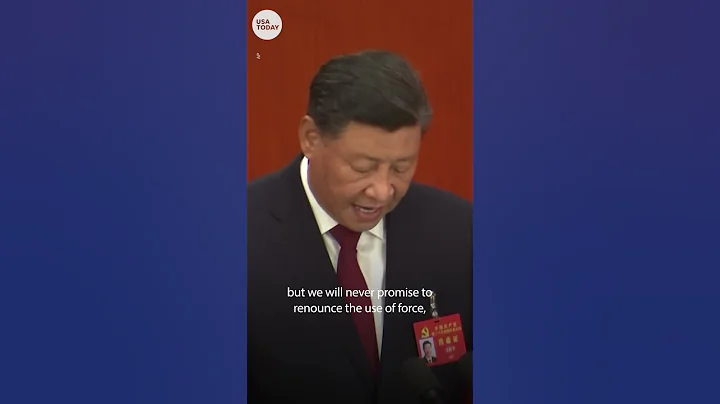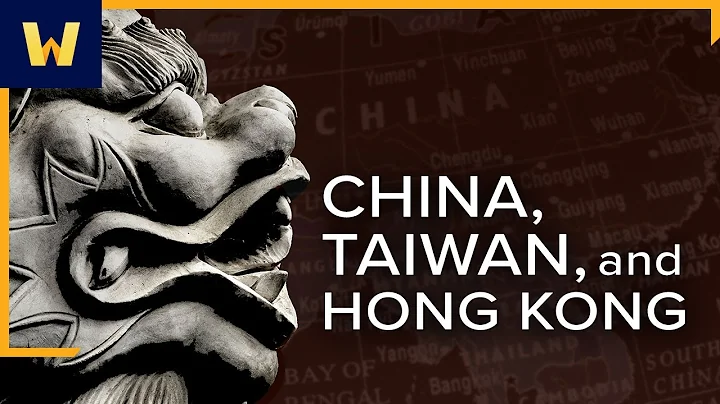
Qing Ben Jiaren——Nai He is a Thief
Wang Jingwei (May 4, 1883 - November 10, 1944), whose real name is Wang Zhaoming, whose courtesy name is Ji Xin, and whose pen name is Jingwei. He was born in Sanshui, Guangdong, and his origin is Shanxi, Zhejiang. Yin (now Shaoxing, Zhejiang). In his early years, he followed Mr. Sun Yat-sen and devoted himself to the democratic revolution. He was full of ambition, happy with grudges, and had passionate revolutionary feelings. Later, his thoughts changed significantly. During the Anti-Japanese War, he defected to Japan, established the puppet Nationalist Government in Nanjing, and became a traitor and traitor. You are a beautiful woman, why am I a thief? Wang Jingwei’s different life is so sad!

Wang Jingwei
In his youth, he traveled east to Japan and followed Sun Wen
Wang Jingwei's grandfather Wang Manting was elected in Shaoxing in the second year of Daoguang (1822), and was later selected to teach in Suichang County. His father, Wang Shengzhai, was an unsuccessful scholar. He worked as a staff member in Guangdong when he was young. The family moved to Sanshui, Guangdong. He maintained the dignity of an official family, with a low salary and a poor life. Born into a family with a strong Confucian atmosphere, Wang Jingwei entered a private school at the age of four and "had developed a good habit of reading" at the age of eight. When he was thirteen or fourteen years old, his parents unfortunately passed away one after another. He relied on his half-brother Wang Zhaoyong to live. In March 1902, Wang Jingwei took part in the Guangzhou Prefectural Examination and won the first place among scholars; his second brother and nephew ranked second and third. Two generations of three talented people from a family have won the top three positions in the same subject. It can be said that "the jade peaks have two beautiful peaks, and the pearl trees and three flowers".

Wang Jingwei's handwriting - "Fame and Morality"
After the Xin Chou Incident, the Qing government announced the abolition of the imperial examination and encouraged students to study abroad, which changed Wang Jingwei's life course. In September 1903, Wang Jingwei was admitted to the accelerated course of law and politics in Japan. In September of the following year, he entered Hosei University in Tokyo to study. Hosei University mainly teaches Western political law. Western democratic political thoughts profoundly changed Wang Jingwei's world view and established his belief in overthrowing the feudal autocratic dynasty and establishing a Western-style democratic republic. Wang Jingwei gradually transformed from a feudal scholar to a bourgeois intellectual. In July 1905, Wang Jingwei paid a visit to Mr. Sun Yat-sen, the revolutionary forerunner. Dr. Sun Yat-sen's idea of initiating revolution and establishing a republic inspired him deeply. He supported Sun Yat-sen's idea of establishing the Chinese Communist Alliance and establishing a unified revolutionary group.

Mount Fuji, Japan - Winter Scene
html On July 30, Wang Jingwei attended the preparatory meeting for the Alliance hosted by Sun Yat-sen in Tokyo. The meeting determined the revolutionary program of "Expelling the Tartars, restoring China, establishing the Republic of China, and equalizing land rights", and recommended Wang Jingwei, Huang Xing and others to be responsible for drafting the charter of the Tongmenghui. On August 20, the Tongmenghui held its founding meeting in Tokyo. The meeting elected Sun Yat-sen as Prime Minister, Huang Xing as General Affairs Officer of the Executive Department, Wang Jingwei as Chairman of the Review Department, and Hu Hanmin as Secretary. At the beginning of the founding of the Tongmenghui, the small revolutionary group in Guangdong, headed by Wang Jingwei and Hu Hanmin, closely united around Mr. Sun Yat-sen and became the backbone of the Tongmenghui who firmly supported Sun Yat-sen. After the establishment of the Tongmenghui, its official publication "Min Bao " was officially launched, with Wang Jingwei serving as editor-in-chief for a time. "His writing is majestic and horizontal, and he may be a great weapon that can turn the world around."
Liang Qichao is like
In the first issue of "Min Bao", he published the revolutionary slogan "The Nation of Nations", exposing the feudal autocracy of the Qing Dynasty and the belief spread by Kang Youwei, Liang Qichao and other royalists that "there is no distinction between Manchu and Han, and the monarch and the people are one body. Fallacies such as "that freedom of political power must not be obtained through revolution" launched a fierce attack on the royalists and were praised by Mr. Sun Yat-sen. Wang Jingwei used his pen as a sword to engage in fierce debates with the royalists. His articles were sharp in writing and profound in reasoning, and relatively completely expressed Mr. Sun Yat-sen's revolutionary thoughts. Liang Qichao was very afraid of Wang Jingwei's refutation articles. He once "had a private meeting with Wang Jingwei and wanted to impress him with his hometown friendship." He tried to win over Wang Jingwei and quell the controversy, but he sternly refused. The Qing court hated Wang Jingwei so much that he once placed a reward of 100,000 ocean on his head, making him famous at home and abroad and becoming an idol in the hearts of progressive young people. Wang Jingwei followed the trend of history and followed Mr. Sun Yat-sen, which was the beginning of the first half of his revolutionary life.

Hukou Waterfall of the Yellow River
2. Raising funds in Nanyang and meeting Bijun
In January 1907, Wang Jingwei went to Nanyang with Mr. Zhongshan to promote the revolution and raise funds. When Sun Yat-sen went to Malaysia to raise funds for the revolution, Chen Gengji, a wealthy overseas Chinese businessman, had donated a lot of money to the Tongmenghui. Sun Yat-sen had no way to repay him and could only often send him the Minbao, the official publication of the Tongmenghui. Unexpectedly, the articles in "Minbao" greatly attracted his beloved daughter Chen Bijun, especially the author named "Wang Jingwei" who aroused her great interest. What kind of person is the author of such a wonderful, passionate, thorough, and skillfully written article?

Chen Bijun (1891-1959) like
By chance, Chen Bijun saw a heroic young man giving an impassioned speech on the street of Penang Island. Chen Bijun was deeply impressed by his style and magnanimity. After asking around quietly, it turned out to be Wang Jingwei! Chen Bijun was moved by Wang Jingwei's revolutionary enthusiasm, fell in love with him and fell in love with him. After that, Chen Bijun no longer had the intention to study. She followed Wang Jingwei wherever he went. Wang Jingwei gave a speech on the stage, and she was like a "shill", applauding and cheering from the audience. The heart of this wealthy daughter has been completely captured by Wang Jingwei. In order to have a common language with Wang Jingwei, Chen Bijun read progressive books eagerly. She also asked her mother to donate a huge sum of money, which moved Wang Jingwei very much.

Malaysia-Penang Island
Soon, Wang Jingwei returned to Japan. Chen Bijun dumped her fiancé (her cousin) and pursued him all the way to Japan in the name of studying abroad. She enthusiastically joined the Alliance and became the youngest member in order to find opportunities to get close to Wang Jingwei. When she learned that the Tongmenghui was worried about funds for its activities, Chen Bijun generously donated all the money given to her by her family to the Tongmenghui. But Wang Jingwei remained unmoved. Chen Bijun was short, fat, and had a rough temperament, which was not a good match for Wang Jingwei, who was handsome and well-educated. Chen Bijun's love letters to Wang Jingwei were all declined by him. Due to the large amount of donations from Chen's parents, Wang Jingwei just excused himself by saying that he did not dare to start a family before the great cause of the revolution was accomplished.

Wang Jingwei's handwriting - "Love and Benefit"
3. Follow the example of Jing Ke and sacrifice one's life
In 1909, Mr. Zhongshan and the Tongmenghui were in trouble. At that time, the Tongmenghui led by Sun Yat-sen launched several armed uprisings in the country, but they were brutally suppressed by the Qing government, and some comrades shed blood and sacrificed their lives. The conservatives took the opportunity to ridicule the leaders of the Revolutionary Party in newspapers for hiding abroad and enjoying life while allowing innocent comrades to die in vain. In order to restore the reputation of the Tongmenghui and counter the suspicion of public opinion and accusations of being greedy for life and fear of death, the Tongmenghui established an assassination department. Its main task was to assassinate important officials of the Qing court in order to quickly disintegrate the Qing Empire. The assassination department is composed of Fang Junying, Wang Jingwei, Huang Fusheng, Wu Yuzhang, Yu Peilun, Qiu Jin and others. Soon, they formulated a secret plan to assassinate the Qing regent Zaifeng . After Chen Bijun found out, he strongly requested to join the assassination team and chose to go with Wang Jingwei and others without hesitation.

Regent - Zaifeng
In 1909, Wang Jingwei led Huang Fusheng, Yu Peilun and Chen Bijun of the assassination team to return to the country and enter Beijing to prepare for the implementation of the assassination plan. Yu Peilun studied in Japan, specializing in chemistry, and was known as the "Bomb King" within the Chinese Revolutionary Party. Wang Jingwei decided to follow the example of Jing Ke during the Warring States Period and personally assassinated the regent. They rented a house in Beijing and put up a sign saying "Shou Zhen Photo Studio". Because the darkroom of the photo studio was suitable for bomb assembly, the smell of chemicals would not arouse suspicion. Several of them divided the work, and while they were busy assembling the bomb, they also explored the route that the regent took when he went to and from court. After several days of intensive investigation, they discovered that the Prince Regent's Palace is on the edge of Shichahai, and there is a Silver Ingot Bridge nearby with fewer pedestrians and is the only way to Shichahai. Wang Jingwei decided to bury the bomb under the bridge and hide in the ditch. When the regent Zaifeng crossed the bridge, he used a wire to detonate the bomb, killing himself and Zaifeng together.

Shichahai Palace
Late at night on March 31, 1910, Huang Fusheng and Yu Peilun went to Yinding Bridge to plant bombs, leaving Wang Jingwei and Chen Bijun behind. Although Wang Jingwei did not love Chen Bijun, Miss Chen fell in love with him after all. The night before the farewell, Chen Bijun burst into tears. She held Wang Jingwei's hand and expressed her true feelings. After midnight, Chen Bijun finally put aside the last layer of dignity and said to Wang Jingwei affectionately: You are going to die generously tomorrow, and I have nothing to give you, so just let me sleep with you for one night, and it will not be a waste of this life's acquaintance. One game! Faced with Chen Bijun's sudden embrace, Wang Jingwei, who was still a virgin, was so excited that his blood boiled and he couldn't help but hug her into his arms. The two of them burst into tears, took off their clothes and took off their belts, falling head over heels in love with each other, and achieved a great success in Wushan in the tragedy. But everything is ready, all we need is the east wind.

Scenery of the Three Gorges - Wushan Yunyu
When Yu Peilun and Huang Fusheng took advantage of the dark moon and high wind to bury the bomb, they were discovered. A group of Qing soldiers rushed over. They dropped the bombs that had not yet been planted and ran away. This carefully prepared assassination plan was aborted. The next day, various newspapers in the capital published the major news that someone wanted to assassinate the regent, but there was no mention of the revolutionary party. They breathed a sigh of relief and decided to take the next step: Chen Bijun and Yu Peilun left the capital to raise money to buy explosives, while Wang Jingwei and Huang Fusheng stayed to continue looking for opportunities. Who would have known that on April 16, a large number of Qing soldiers suddenly surrounded the "Shou Zhen Photo Studio" and captured Wang Jingwei and Huang Fusheng in one fell swoop. It turned out that after the Qing court discovered the bomb, they immediately suspected that it was the work of the revolutionaries. They decided to first use smoke bombs to create false news to stabilize the assassin, and then work intensively to solve the case.

Prince Su - Shanqi
4. Trapped in jail, a promise of gold
Based on the new screws on the bomb, the Qing army followed the clues and investigated various blacksmith shops in the capital. When they found a blacksmith shop that sold screws, the owner of the blacksmith shop said that this was The guy from "Shou Zhen Photo Studio" bought it from here. The facts of the case finally came to light. The person responsible for hearing the case in the Qing court was Prince Shanqi, Minister of Civil Affairs. Shanqi is the tenth-generation grandson of Prince Su, the eldest son of Emperor Taizong of the Qing Dynasty, Prince Su Hauge. He is outstanding in military prowess, elegant in conversation, and far-sighted, and is beyond the reach of ordinary children of the Eight Banners. The interrogation went extremely smoothly. Wang Jingwei and Huang Fusheng both argued that they were the masterminds and were willing to bear full responsibility. Wang Jingwei's majestic demeanor in court actually impressed Prince Su, and his love for talents arose spontaneously. At this time, the Qing government's new policy reforms had been carried out, and the criminal and civil laws of the capitalist nature began to be introduced into the ancient Qing Dynasty.

Wang Jingwei's handwriting - "Inscriptions on Poetry"
When Prince Su reported to the Qing court, he avoided the important and ignored the trivial, and emphasized: We are reforming, and we should convince people with virtue and win the hearts of the people. What's more, this was a "premeditated" assassination that was not actually carried out. Prince Su was nagging for a while, but the regent actually agreed: not to kill Wang Jingwei in order to win the hearts of the people! The mastermind of a shocking case was sentenced to only one life sentence . Prince Su went to the prison many times to persuade Wang Jingwei to change his mind and be released. As a result, Wang Jingwei and Prince Su often debated the issues of democratic revolution and constitutional monarchy. Although no one convinced anyone, they still cherished each other and respected each other. Wang Jingwei wrote a long poem "Caught in the Mouth" in prison, which is most praised by people: holding a stone in one's hand leads to infatuation, and the waves are filled with sorrow. Flying alone is never tired, and I am ashamed to chase the seagulls floating. It’s so colorful and red that it’s difficult to render it beautifully. His hair was gray and stained with blood. He sang generously to Yan City, and was a prisoner of Chu calmly. Leading the sword into success, living up to the youth's reputation. Keep your heart and soul, but your body will be ashes. The green phosphorescence is immortal and illuminates Yantai every night.

Generous Ge Yanshi - Calmly Being a Prisoner of Chu
Just as Wang Jingwei was suffering in prison and did not know when he would see the light of day again, one morning, a jailer stuffed in ten cooked eggs. Wang Jingwei, full of suspicion, took the eggs. Turning it over to check, he found a small word "bi" written on an egg shell! It turned out that Chen Bijun took the risk to return to Beijing and spent a lot of money to bribe the jailer. From then on, she secretly sent food and clothing to Wang Jingwei for a long time, which saved Wang Jingwei from suffering a lot in prison.Wang Jingwei was so moved that he composed a poem and asked the jailer to pass it on to her: The leaves fall in the sky and the night sounds faint, and the two of them rely on each other in their dreams; the wind and water change today as if they were yesterday, and the soul in the maple forest is right and wrong. Although it is worthy of meeting each other when we enter the land, there is no way to return to the mountains. I remember that we shed tears in the new pavilion together, and endured the tears to cover our clothes.

Wang Jingwei's handwriting - "Fan"
Chen Bijun burst into tears after reading it and was very excited. She embroidered a pair of pillows with lotus flowers on them, and included a text message inside the pillow for Wang Jingwei. The content is: "Fourth brother is like a face: come back thousands of miles away, the love of comrades is also the love of sons and daughters. The love for my brother has lasted for a long time, and this love will never change. But in this life, there is no hope of being in the same quilt, but hope After death, my wish will be fulfilled if I can obtain the same acupuncture point. Give me a marriage contract as proof that she will be the wife of your family in the future, and she will be willing to die for a while. Wang Jingwei was extremely moved by Chen Bijun's passionate love. He bit his finger and wrote the word "Promise" with blood. Chen Bijun cried for three days after receiving Wang Jingwei's blood letter. His true love for many years finally paid off.

Wuchang Yellow Crane Tower
Sincerity leads to gold and stone. On October 10, 1911 (the third year of Xuantong in the Qing Dynasty), the Wuchang Uprising broke out. In order to ease the conflict, the Qing government, which was still struggling, announced the release of political prisoners. After various rescue efforts by the revolutionaries, Wang Jingwei was finally released after less than a year in prison. The prince charming that Chen Bijun was eagerly awaiting has returned. Some people say: Wang Jingwei cannot succeed without Chen Bijun, and he cannot fail without Chen Bijun. In a sense, Chen Bijun did pay a lot for Wang Jingwei, including youth, energy and wealth; however, Wang Jingwei's depression, transformation, and fall in the second half of his life, and finally became a sinner of history, have a lot to do with Chen Bijun's incitement, connivance, and even coercion. Relationship. This mutated couple eventually became the top ten traitors during the Anti-Japanese War!






















